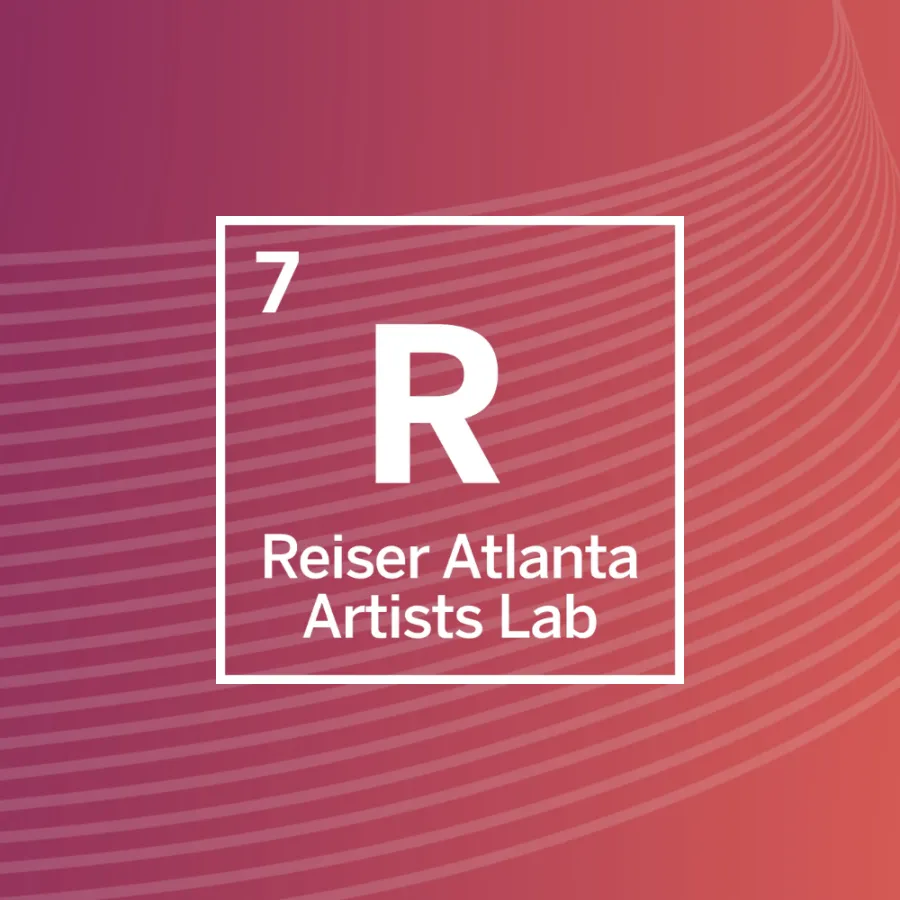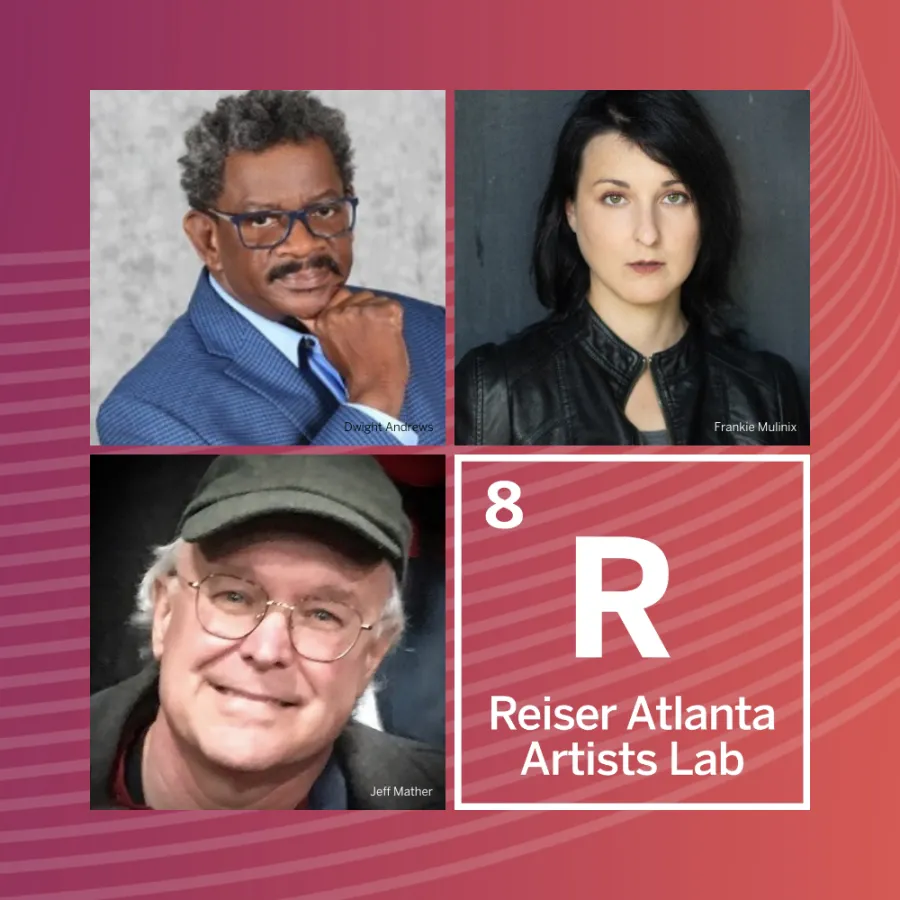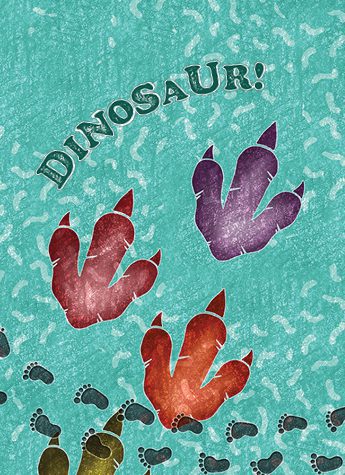- Shows &
Tickets - Classes &
Camps-
-
-
-
Interested in after-school activities for your kids? Explore After School Programs
-
-
-
- Schools &
Educators-
-
- Schools & Educators
Partner with the Alliance Theatre Institute for professional learning for educators and arts-integrated or theater-based instruction for students.
-
Unique Programs
We offer unique programs that use the power of the arts to inspire students, develop skills, and create positive change in schools and communities.
- Poetry Out Loud: Georgia
- JumpStart Theatre
-
-
-
-
Tickets for Teachers is a free ticket program for educators for Alliance Theatre productions. View Program Details
-
-
-
- Artists &
Community-
-
- Artists & Community
Learn more about our playwriting programs, partnerships with community organizations, and resources for artists.
-
An exploration of theater and the people who make it happen.
-
Check here for all major announcements from the theater.
-
-
- Impact &
Support-
-
- Impact & Support
Your support brings stories to life, funds community programs, and ensures more people have access to powerful theater experiences.
-
Name a Seat in the Goizueta Stage
Put your unique handprint on better tomorrows for Atlanta's young audiences.
-
-



The Reiser Atlanta Artists Lab celebrates the breadth and vision of Atlanta-based artists, encourages collaboration among Atlanta’s artistic community, and seeds projects that will be produced here in Atlanta. Each year, the Alliance extends an open call for local artists to submit their projects for consideration. Three projects are chosen for development by a panel of judges representing local and national artists of varying disciplines.
Read more about the Reiser Atlanta Artists Lab Round 8 projects and their lead artists below.
Man of Wood, Man of Fire (w.t.): This is a musical theater work on the life of Dr. William Edward Du Bois. The show is a reflection on the long life of the intellectual titan, narrated by Du Bois himself from the vantage of his final years working on the Encyclopedia Africana in Ghana. It details his intellectual endeavors, political advances, and romantic relationships, underscored by powerful music inspired by his time.
Lead Artist: Dwight Andrews (Composer/Professor, Emory University)
Trojan Women (w.t.): This production of Trojan Women draws on butoh-based movement, texts, sounds, and events that have recently impacted Atlanta to portray the experiences of those who are most vulnerable during war, pestilence, social inequality, and economic insecurity. Using a style that is surreal, beautiful, and raw to explore themes that feel very immediate, this production tells the story in the voices of people of marginalized genders – who often have their stories told for them and voices silenced.
Lead Artist: Frankie Mulinix (Director, Burning Bones Theatre Company)
Daughter House 5: Environmental sculptor and theater design artist, Jeff Mather, textile artist, Marquetta Johnson, and storyteller, actor, percussionist, John Doyle collaborate on a staged performance project that portrays time travel that is triggered by trauma. Through quilts, both actual quilts and video mapping projections, these artists will layer live and digital storytelling with percussion to punctuate the way that trauma can alter both time and character.
Lead Artist: Jeff Mather (Environmental Sculptor, Mather Site Art)
What inspired you to create this piece and why is now the time to experience it?
Dwight Andrews: There were a couple of driving factors in my involvement in this piece. The center character, W.E.B Du Bois, is an American icon, a hero. But for some reason, we haven’t explored his history, stories, or life. So, I was interested in this character. He’s a person we don’t know a lot about. The second factor, my collaborator, Louis, is my long-term friend. We actually worked on a documentary project about W.E.B Du Bois. It was an awarding-winning film that I got to score. We revisited the idea of digging into Du Bois together. A third reason for why we wanted to do this piece is because there is a very strong ATL connection. He taught here. He was here during the Atlanta Race massacre during 1906. I wanted to explore the Atlanta connection.
Frankie Mulinix: Watching what was happening in 2020 caused [Trojan Women] to speak to me more. As the marches in the streets happened, it made me think more about the importance of life and lives, of everything going out from under us, and this feeling of what’s left after all this chaos. There’s this type of war and upheaval going on. So, tying the world of the play into contemporary life, aka Atlanta, which is a city that has a lot of questions around money and poverty—I thought about how the South is about choosing how to walk with ghosts. For example, there’s a cotton mill that’s part of a park by my house. For me, it brings up a lot of tension since this place of leisure is marked by a symbol of an industry built on ownership, theft, and suffering, and was used during the Civil War to make Confederate uniforms until it was destroyed by the Union forces. So, I think it’s really important to ask about our history and the ghosts that walk with us and our legacy. There are a lot of questions I’m asking around the identity within Atlanta, and what is it to be victimized when choosing resistance. I’m a believer in theatre that isn’t propaganda—it leaves a lasting image. Theatre and performance that creates a visual poem.
Jeff Mather: I was up in the mountains of New Hampshire, and I woke up at an odd hour, at like 4:00am, and I found myself thinking about two of my teaching artist colleagues who I had run co-residencies with. I thought about how they understand art making as a strategy for resilience in the face of trauma. The concept of the layers of Daughter House 5, including the title, came to me all at once. I knew immediately that a collaboration with these two artists would be rewarding and result in something profound.
At first, I was not aware of the Reiser Lab because I am not a theatre artist. I am a community-based public artist. But I do collaborate with theatre artists. I am not a set designer, but I have created sculptural elements for sets. I have always blurred the lines between visual arts and theatre arts. When I looked a little further, I saw that the lead artist for Reiser Lab projects does not have to be an actor, producer, director, or playwright. I saw that the backstage people, designers, could apply.
What are you passionate about, and how does that affect what you create?
Dwight Andrews: I’m passionate about this work that we’ve not finished around race, power, and privilege. Being a person of privilege, I’ve had a great upbringing, education, and access. I’m interested in people getting the same access. I want to really try to intersect with my own privilege and power to open the doors for others. I’ve been very fortunate: I’ve worked at the Alliance, I’ve toured Broadway, ya know. But a lot of people don’t get that because of their skin color. So, I want to be a person who helps people see their own creativity beyond their race and racism. I’m passionate about having conversations around race and power that people are too afraid to have. We live in a world where race plays into life-or-death matters. I’m doing my best to push back against that. I want to make art at the center of our conversation about how we live together.
Frankie Mulinix: I grew up around performers who were hungry for that extra skill or opportunity so that they could still do what they’re passionate about while also filling their cup. Learning a different methodology isn’t the antithesis to what matters to them, but an addition to their skill so they can book the work that they want. When I came [to Atlanta], I wanted to see something different and off the path, which motivated me to step up and contribute through teaching butoh in the community and creating a theater company that centers butoh in its performance approach.
Through this practice, I ask questions like how does the nervous system of the performers impact the nervous system of the audience members? How does a traumatic process affect the audience? During the process, I don’t believe in safe spaces because what might make a space safe for you, may not make a space safe for me. Instead, I believe in a brave space, which is a space where we can accommodate artists to show up as their bravest selves.
Jeff Mather: I am passionate about inclusion and finding ways to invite people into the artistic process even if they might not think of themselves as artists. Visual artists aren’t typically as collaborative as performing artists. I try to provide many “handles,” or multiple points of entry into the creative process. I’ve learned different strategies for this way of being a public artist thanks to the southeastern arts organization, Alternate ROOTS.
Alternate ROOTS is a community-based art for social justice and environmental justice organization. ROOTS funnels funding from large foundations into artists projects that align with the ROOTS mission. ROOTS artists also offer one another peer feedback to help hone their work.
How do you foster a healthy environment for your creativity?
Dwight Andrews: If I knew the answer to that, I wouldn’t have as nearly gray hairs as I do in my head right now. I don’t know the answer—I don’t think I do it very well. I always jump all in, but I still prioritize my sleep, my food, myself, etc. But I’m not very good at setting boundaries around my creativity.
Frankie Mulinix: I believe in the importance of having a practice. Having an on-going living practice. It’s not waiting for the thunder bolts, but continuing to truck along. As athletes train, the same applies to performers. Therefore, performers are consistently working on their craft for that “moment.” For example, my creativity is kept alive because I teach various techniques, like butoh, and I have my own performance life and personal projects, which keeps me honest as a teacher and a director.
Jeff Mather: First, there’s fostering a healthy environment for me as an artist and as a collaboration coach. And then there’s fostering a healthy environment for the participants in my projects. I rarely work alone. Which is a good thing because I have a color vision deficiency. I know that is a weakness for me as a visual artist, so I reach out to artists who work well with color. So, you have to find those people whose strengths balance your weaknesses. True collaboration provides opportunities for individuals to rise up with their strengths.
What do you hope to achieve as an artist?
Dwight Andrews: That’s a very good question…and let me say that I don’t think of myself as an artist. I think of myself more as musician and a composer. I do some art, but it doesn’t feel like a term I’m comfortable with. But what I aim to do with my creative work is to create a living experience that livens the person. I don’t want you to step over the music I created because it wasn’t important. I want you to trip or fall on it. I want you to feel alive in some way.
Frankie Mulinix: My long-term goal is to have people continue to do this training. We can add to this, the training experience of the members of the production, which asks for sustained effort from performers. So, I want there to be more of a training culture in Atlanta and I want education to be something people take pride in. I want to be more process orientated. I want to bring butoh more into Atlanta.
Jeff Mather: This is a wonderful opportunity to stretch out as a professional and to have a chance to work at a completely adult level with two other excellent creatives. The three of us spend much of our time working with K – 12 students. We are relishing this chance to work so closely together, and we are documenting our collaborative process as we go. In fact, we see the documentary that will result as a parallel art project itself.
Why is new-play development important to you?
Dwight Andrews: Because we have so many stories to tell and because they all need to be told. Every time I see or hear new work, I say, “Great!” because we have many stories to tell. We don’t live in a community unless we get to hear each other’s stories. Finding ways to hear people’s stories means we get a chance to see ourselves in those stories. Even if we say that’s not my story for certain reasons, that is still a growth moment.
Frankie Mulinix: We need new voices; we also need new ways of working. A lot of my training has been from the 60’s, and a lot of those people have passed, but I think it’s okay for that to continue to evolve. To stop telling people that the white man is the neutral and that someone like Shakespeare is the universal. It’s useful to attend theatre that isn’t made for you—we read books about experiences that aren’t for us, which makes us learn.
I think it is also so vital because people need opportunities to develop their craft, including playwrights. We can’t expect people to show up fully developed if they haven’t had the opportunity to grow. We have to give people the opportunities to do that.
Jeff Mather: I don’t know if I can answer this because we’re not thinking of Daughter House 5 as a play. The Reiser Atlanta Artists Lab leaders and producers have encouraged us from the beginning to be as experimental as we can be, and we’re looking at finding a new genre.
In one sentence, why theatre?
Dwight Andrews: Because it makes me come alive. Theatre makes me come alive.
Frankie Mulinix: Because it is a place for bravery that is unlike other art forms.
Jeff Mather: My approach to theatre is definitely a back-stage approach. I help create the space, then find the drama in that space.
The final presentations for the Round 8 projects in the Reiser Atlanta Artists Lab will be presented in the Selig Family Black Box Theatre on May 11–13, 2023. Learn more and reserve your free ticket.












